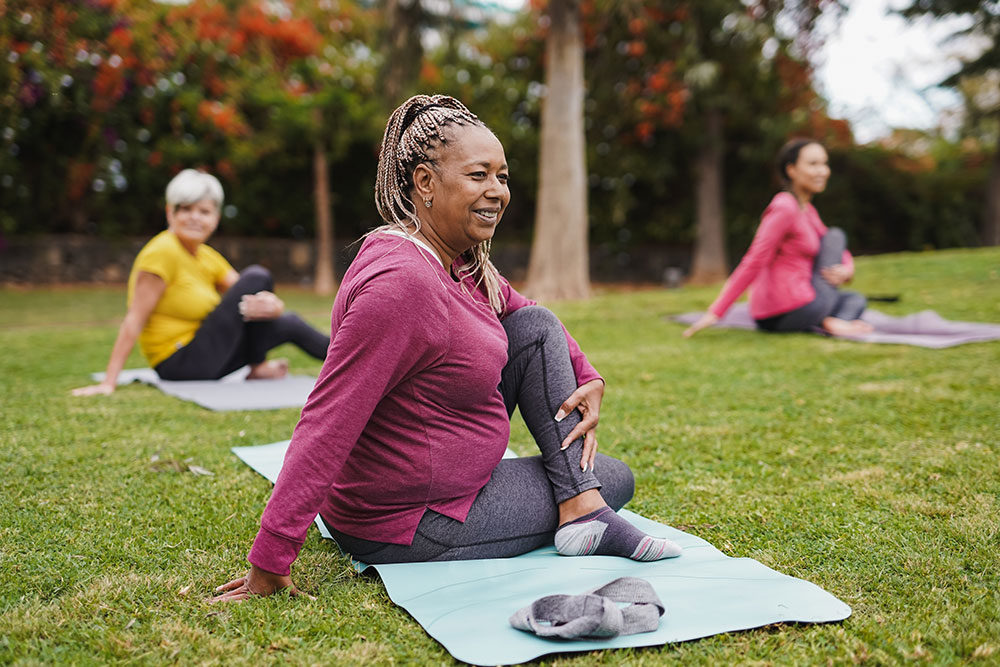
When you think of sleepwalking, what comes to mind? You may think of scenes from films, where zombie-like beings sleepily walk around with their arms stretched out in front of them. Or slapstick comedy sketches, where a sleepwalker gets up and walks straight into a wall. Ouch!
Well, there’s much more to sleepwalking than these theatrical examples. Here’s a breakdown of the causes, symptoms and possible methods of treatment for sleepwalking.
Understanding Somnambulism
Somnambulism is the medical term for sleepwalking. This is the condition where a person gets up and walks around while they are in a state of sleep. It can range from walking around a room or house to sitting up in bed.
It can affect children and adults but is more common in children. Most children outgrow sleepwalking by their teens.
The occasional episode of sleepwalking doesn’t require treatment or signal a serious issue but recurrent episodes may be the sign of a sleep disorder.
What Are the Causes of Sleepwalking?
The exact cause of sleepwalking is still a mystery. Scientists do believe though that it’s something that can run in the family. You’re more likely to have this sleep disorder if there are others in the family that have it.
Sleepwalking can be triggered or made worse by:
- Certain mental health conditions such as anxiety
- Stress
- Lack of sleep
- Substance abuse
- Alcohol abuse
- Certain types of medication, such as sedatives
- Brain injuries
- Fever – particularly in children
- Sleep disorders like Obstructive Sleep Apnea and Restless Leg Syndrome
What Are the Symptoms of Sleepwalking?
Sleepwalkers may experience one or more of the following symptoms:
- Talking in their sleep
- Being difficult to wake up
- Not responding when spoken to, or not making sense
- Sitting up in bed and making repeated movements, like rubbing their eyes or pulling at their night clothes
- Seeming dazed
- Clumsy behaviour
- Urinating in strange places – the corner of the bedroom or a wardrobe
Sleepwalking Risks
While sleepwalking is relatively harmless, there are risks to the sleepwalker and those around them. To eliminate risks, you should:
- Lock away weapons and sharp objects
- Close and secure doors and windows
- Install motion sensor lights
- Remove trip hazards
- Use motion sensor alarms that activate when the sleepwalker gets up from bed
Over the years there have been isolated incidents where people have committed serious crimes while in a state of sleep. In the 1987 case of Regina v Parks, Kenneth Park was acquitted of the murder of his mother-in-law, using sleepwalking as his defense.
On the night of the murder, Parks rose from his bed and drove to his in-laws’ home. It was 14 miles away! He strangled his father-in-law, bludgeoned his mother-in-law with a tyre iron and then stabbed both with a kitchen knife. His mother-in-law died in the attack.
When in police custody, Park appeared confused and was oblivious to the severed tendons in both of his hands, as a result of the force he used in the attack. This, alongside a family history of parasomnia – a sleep disorder characterised by strange or disturbing behaviours, saw him receive a not-guilty verdict.
What to do If You See Someone Sleepwalking?
It can be startling to see someone sleepwalking. You may feel the urge to try to wake them but the best thing to do is to make the environment safe for them, as mentioned above. They will usually just go back to bed, if undisturbed. You can try to gently usher them back to bed but be sure to not shout or use aggression, because this may cause them to lash out at you.
How Is Sleepwalking Treated?
If you have any sleepwalking concerns the first thing to do is see a doctor. They’ll be able to look further into the matter and establish the underlying causes. Doctors will be able to confirm if any medications are linked to sleepwalking episodes.

A method to try could be ‘anticipated awakening’. This is where the sleepwalker is woken up just before a potential episode of sleepwalking. To do this you would need to have an idea of their sleep patterns. Do they sleepwalk at the same time each night? Do they sleepwalk after consuming alcohol or when they are particularly stressed or sleep deprived?
Talking therapy, such as Cognitive Behavioural Therapy for Insomnia (CBT-I) looks at negative thought patterns and how we think about sleep. It also includes relaxation techniques that can be used to prepare for sleep.
The sleeping environment and habits of someone affected by sleepwalking are another angle to try. This is known as sleep hygiene. Habits such as irregular bedtimes, drinking alcohol or caffeine too close to bedtime can have a big impact on sleep. So too can an uncomfortable mattress.
Medication is often the last resort when trying to tackle sleepwalking. Melatonin supplements may be prescribed, for short-term use. Antidepressants can also affect sleepwalking. There are natural remedies too, that can be purchased from health food shops and won’t need a doctor’s appointment.
Sound Mental Health Aids Sleep
As we have seen a cause of sleepwalking is the state of our mental health. Knowing what triggers you, what keeps you awake at night and how to self-soothe can do the world of good. Our mental health is key to living a fulfilled life, so give it the attention it deserves.
About the author(s)






















































































































































































































































































































































































































































































































































